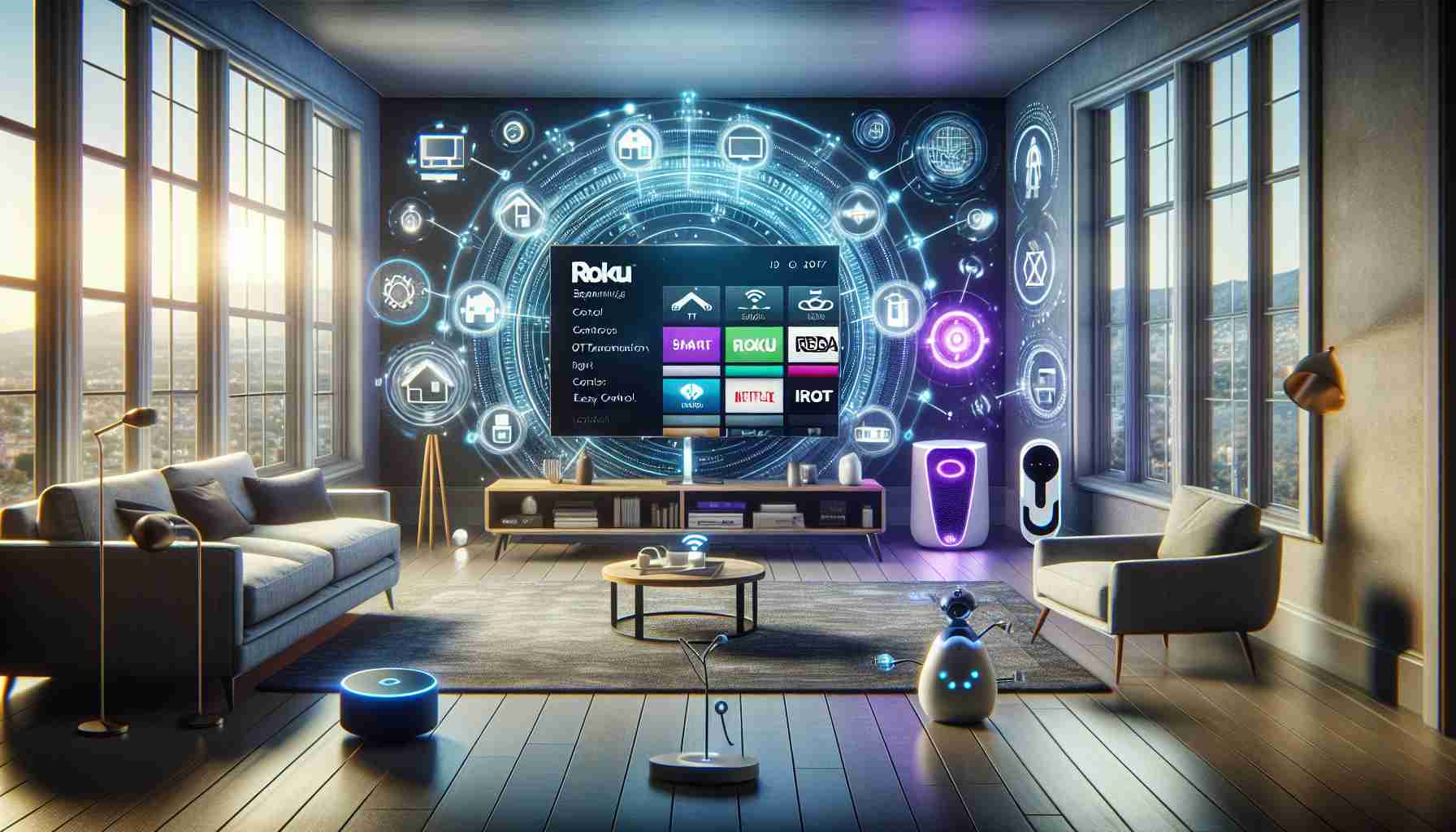Roku, known for its widely used media-streaming devices, is making waves in the smart home sector, boasting over 80 million active accounts by 2024. The company has not only become a leader in streaming but has also surpassed leading traditional cable providers in user subscriptions. Roku is recognized as a frontrunner in the streaming market in the United States, outshining brands like Amazon and Google.
Roku devices are celebrated for their affordability, user-friendly interface, and extensive customization options. Users appreciate the platform’s seamless integration with various streaming services, and it is easy to navigate even for those less tech-savvy. In addition to streaming, Roku has ventured into smart home products since October 2022, offering consumers innovative and practical solutions to enhance their living spaces.
Among their offerings are video doorbells that allow users to see and communicate with visitors remotely, elevating home security. Roku’s doorbell options include a wired model and a wire-free version, both equipped to alert users through motion detection and sound notifications.
Moreover, Roku’s lineup features indoor and outdoor security cameras ideal for monitoring your home. With affordable pricing starting at just $29.99, these cameras integrate seamlessly with Roku devices, providing a cohesive ecosystem for users. As Roku continues to expand, its push into smart home technology presents exciting opportunities for existing users to enhance their home security and connectivity.
Roku Expands Its Offerings into Smart Home Technology: A Comprehensive Overview
Roku, the streaming giant with over 80 million active accounts by 2024, is making a significant leap into smart home technology by diversifying its product offerings beyond media streaming. Building on its reputation for user-friendly and affordable solutions, Roku aims to create an integrated ecosystem that caters to the evolving needs of modern consumers.
What are Roku’s Key Smart Home Innovations?
Roku’s foray into the smart home market includes not only video doorbells and security cameras but also smart lights and voice-controlled appliances. By incorporating smart lighting solutions, Roku allows users to control their home atmosphere through voice commands or mobile app integration. This expansion positions Roku to compete directly with established smart home players like Google Nest and Amazon Echo.
How does Roku’s Smart Home Technology Integrate with Existing Systems?
Roku’s smart home products are designed to integrate seamlessly with the Roku streaming platform, enabling features like scheduling, remote access, and smart notifications through the Roku app. This approach fosters a cohesive user experience, allowing consumers to manage both their entertainment and home security from one centralized interface.
What are the Key Challenges Faced by Roku in the Smart Home Market?
Despite its advantages, Roku faces several challenges:
1. **Competition**: Established players like Amazon, Google, and Apple dominate the smart home market, offering extensive ecosystems and brand trust.
2. **Security Concerns**: As smart home devices become more prevalent, security vulnerabilities could pose a risk to user privacy. Ensuring robust cybersecurity is paramount for Roku to gain consumer confidence.
3. **Product Development**: Rapid advancements in technology require Roku to continuously innovate and update its product line to meet customer expectations.
What Are the Advantages and Disadvantages of Roku’s Smart Home Offerings?
**Advantages**:
– **User Friendly**: Roku’s interface minimizes complexity, making it accessible to all user demographics.
– **Affordability**: Prices for Roku smart home products are competitive, starting from as low as $29.99, making them an attractive option for budget-conscious consumers.
– **Integration**: The ability to connect multiple devices under one platform enhances user experience and convenience.
**Disadvantages**:
– **Limited Product Range**: Currently, Roku’s smart home portfolio is smaller compared to more established players, which may limit consumer choice.
– **Dependence on Internet Connectivity**: Like most smart home products, Roku’s devices rely on stable internet connections, which can be a downside in areas with poor connectivity.
– **Potential for Breach of Privacy**: As with all connected devices, there is a risk of personal data being accessed if security measures are not adequately enforced.
Conclusion
As Roku continues to expand its footprint in the smart home technology arena, it faces both opportunities and challenges. The company’s commitment to affordability and user access will serve it well, but it must also navigate significant competition and security challenges to build consumer trust. For consumers already entrenched in the Roku ecosystem, this expansion offers promising enhancement options for their homes.
For more information on Roku and its latest offerings, visit Roku.
The source of the article is from the blog yanoticias.es
